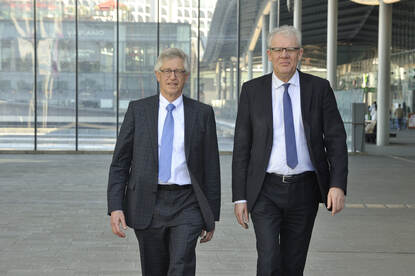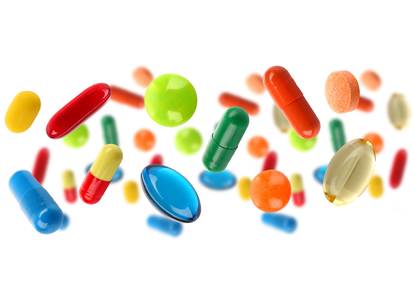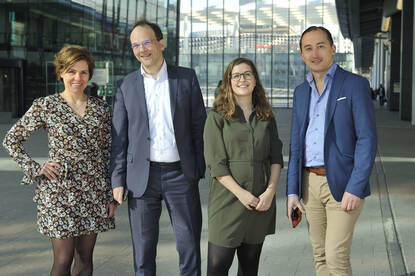In order to be allowed to market medicines for human use, a pharmaceutical company requires a marketing authorisation. In the Netherlands the MEB issues these authorisations for regular medicines and botanicals (herbal medicines).
Medicines for human use 2018: regular medicines
Medicines can be authorised for the market via a centralised procedure (CP), a mutual recognition procedure or a decentralised procedure (MRP/DCP), or a national procedure.
(Co-)rapporteurships assigned via the centralised procedure (CHMP)
| Land | Aantal |
|---|---|
| Zweden | 24 |
| Nederland | 23 |
| Duitsland | 19 |
| Oostenrijk | 18 |
| Spanje | 16 |
| Denemarken | 15 |
| Frankrijk | 14 |
| Ierland | 12 |
| Polen | 12 |
| Finland | 10 |
| Tsjechië | 10 |
| Noorwegen | 9 |
| Portugal | 8 |
| Italië | 7 |
| Hongarije | 7 |
| Estland | 6 |
| IJsland | 6 |
| België | 5 |
| Letland | 5 |
| Malta | 3 |
| Kroatië | 2 |
| Roemenië | 2 |
| Griekenland | 1 |
| Litouwen | 1 |
| Slovenië | 1 |
| Slowakije | 1 |
| Verenigd Koninkrijk | 1 |
| Bulgarije | 0 |
| Cyprus | 0 |
| Luxemburg | 0 |
The number of centralised (co-)rapporteurships assigned to the MEB in 2018 increased substantially compared to 2017. The MEB is in second place, just behind Sweden, and is followed at some distance by Germany, Austria and Spain.
It is striking that Spain has acquired a relatively large share and that the United Kingdom has performed a lot less work due to Brexit. Another striking feature is the relatively large spread of the centralised (co-)rapporteurships. A lot of countries are participating and that means that the network as a whole appears to have become stronger. The MEB has also cooperated with other countries in multinational assessment teams.
Assigned pharmacovigilance rapporteurships (PRAC)
| Land | Aantal |
|---|---|
| Zweden | 30 |
| Nederland | 29 |
| Duitsland | 20 |
| Frankrijk | 20 |
| Spanje | 19 |
| Denemarken | 12 |
| Oostenrijk | 10 |
| Finland | 8 |
| Ierland | 8 |
| Polen | 6 |
| België | 5 |
| Italië | 5 |
| Noorwegen | 5 |
| Verenigd Koninkrijk | 3 |
| Hongarije | 2 |
| Letland | 2 |
| Litouwen | 2 |
| Portugal | 2 |
| Tsjechië | 2 |
| Kroatië | 1 |
| Slowakije | 1 |
| Bulgarije | 0 |
| Cyprus | 0 |
| Estland | 0 |
| Griekenland | 0 |
| IJsland | 0 |
| Luxemburg | 0 |
| Malta | 0 |
| Roemenië | 0 |
| Slovenië | 0 |
The PRAC (Pharmacovigilance Risk Assessment Committee) plays an important role in terms of supervising the risks of medicines for people in Europe. The PRAC meets on a monthly basis at the European Medicines Agency (EMA). The PRAC makes recommendations to the Committee for the Assessment of Medicinal Products for Human Use (CHMP) and The European decision-making body CMDh about the risks of medicines which are authorised in the European Union.
In terms of the number of PRAC rapporteurships assigned in 2018, the Netherlands is in second place, just behind Sweden, and is followed at some distance by Germany, France and Spain. The number of rapporteurships for the Netherlands has remained stable compared to 2017. It is striking that one third of the network does not participate in PRAC rapporteurships, often due to limited capacity, and that the United Kingdom already carried out fewer PRAC rapporteurships due to its impending Brexit.
Applications initiated via the decentralised (DCP) and mutual recognition procedure (MRP) with share MEB and RMS
| Land | Aantal |
|---|---|
| Nederland | 269 |
| Duitsland | 249 |
| Portugal | 158 |
| Verenigd Koninkrijk | 136 |
| Denemarken | 105 |
| Zweden | 93 |
| Spanje | 70 |
| Tsjechië | 50 |
| Oostenrijk | 50 |
| Hongarije | 45 |
| Malta | 40 |
| Ierland | 32 |
| Finland | 18 |
| Polen | 15 |
| Estland | 15 |
| Kroatië | 13 |
| Noorwegen | 12 |
| Letland | 11 |
| Frankrijk | 8 |
| België | 7 |
| Slowakije | 6 |
| IJsland | 4 |
| Slovenië | 4 |
| Italië | 3 |
| Griekenland | 1 |
| Bulgarije | 0 |
| Cyprus | 0 |
| Litouwen | 0 |
| Luxemburg | 0 |
| Roemenië | 0 |
As Reference Member State, the majority of procedures in mutual recognitions and decentralised procedures were started at the MEB in 2018, compared with the other European countries. The number of procedures was stable during the years at almost 20 percent. The Netherlands is followed closely by Germany and Portugal is also making a significant contribution.
Assigned Scientific Advice applications - European
| 2017 | 2018 | |
|---|---|---|
| AT | 166 | 130 |
| DE | 153 | 142 |
| DK | 153 | 60 |
| UK | 142 | 132 |
| NL | 135 | 130 |
| BE | 124 | 103 |
| SE | 98 | 78 |
| IT | 92 | 62 |
| ES | 63 | 41 |
| FR | 61 | 80 |
| FI | 60 | 60 |
| IE | 51 | 70 |
| PT | 51 | 49 |
| IS | 49 | 52 |
| NO | 34 | 45 |
| HR | 0 | 18 |
| PL | 0 | 18 |
| LT | 0 | 17 |
| MT | 0 | 14 |
In the case of assigned (European) scientific advice it is striking that a relatively large number of new countries have joined the Scientific Advice Working Party (SAWP), namely Croatia, Poland, Lithuania and Malta, and that these immediately carried out a significant number of procedures. It is clear that the leaders from last year have had to relinquish ground to the middle group and these new members. The number of procedures is distributed across the participating countries in a much more balanced way than in previous years.
This shows that the network as a whole has been strengthened and that countries which played no, or a smaller, role up to now have also started participating. The Netherlands shares third place with Austria, just behind Germany and the United Kingdom, and has been almost able to retain its relative share of 10%, despite this trend. It is striking that, despite the levelling trend, Ireland, France and Norway have managed to increase their share significantly.
Opened cases national scientific advice
| Scientific advice | Customised scientific advice | |
|---|---|---|
| 2016 | 78 | 12 |
| 2017 | 101 | 12 |
| 2018 | 110 | 7 |
The number of times that scientific advice was given nationally has also slightly increased. An element of this is tailor-made advice to encourage innovation at universities and small businesses. The MEB also carried out a regulatory test 13 times in 2018 for drug rediscovery applications to ZonMW and this figure is not included in the table.
Parallel import applications
| 2016 | 2017 | 2018 | |
|---|---|---|---|
| Number of applications | 428 | 447 | 520 |
The number of parallel import applications has increased substantially compared to last year. In particular there has been an increase in applications whereby the Dutch reference product was not exactly the same.
Applications via the national procedure
| 2016 | 2017 | 2018 | |
|---|---|---|---|
| Number of applications | 46 | 66 | 57 |
The number of national procedures has stayed approximately the same over the years. In the majority of cases applicants preferred a European procedure so that the product could be immediately launched onto the European market.
Concluded cases, including variations
| 2016 | 2017 | 2018 | |
|---|---|---|---|
| Number of concluded cases | 18060 | 19664 | 25070 |
The number of concluded cases is gradually growing. This relates to authorisation applications, applications for expansion of indication, as well as minor variations, such as changing a manufacturer in the dossier.
Number of registered marketing authorisations
| 2016 | 2017 | 2018 | |
|---|---|---|---|
| Number of registered marketing authorisations | 14004 | 14078 | 14236 |
The number of registered marketing authorisations has gradually increased over the years by between 50 and 100 per year. Although a large number of marketing authorisations are withdrawn every year as well, the number of newly granted marketing authorisations is still always greater.
Direct Healthcare Professional Communications
| 2016 | 2017 | 2018 | |
|---|---|---|---|
| Number of DHPCs | 30 | 21 | 31 |
The identification and assessment of adverse reactions during the entire life cycle of a medicine is one of the MEB's core tasks. On the instructions of the MEB the Netherlands Pharmacovigilance Centre Lareb maintains a record of all possible adverse reactions in the Netherlands. In a European context the Netherlands is responsible for monitoring 89 active substances.
In the event of urgent and/or important safety issues, healthcare practitioners are informed by means of a letter, referred to as 'Direct Healthcare Professional Communication (DHPC)'.



